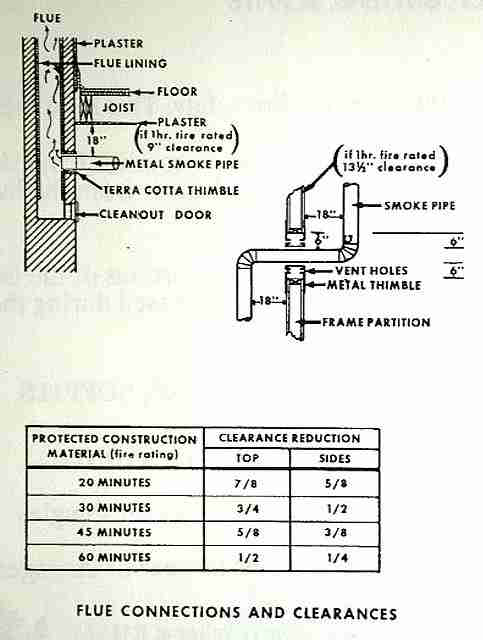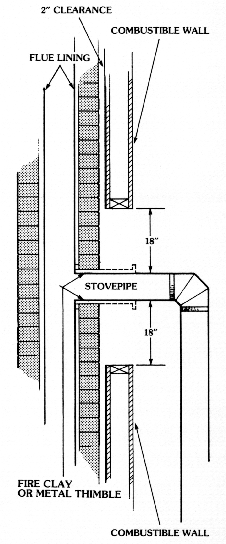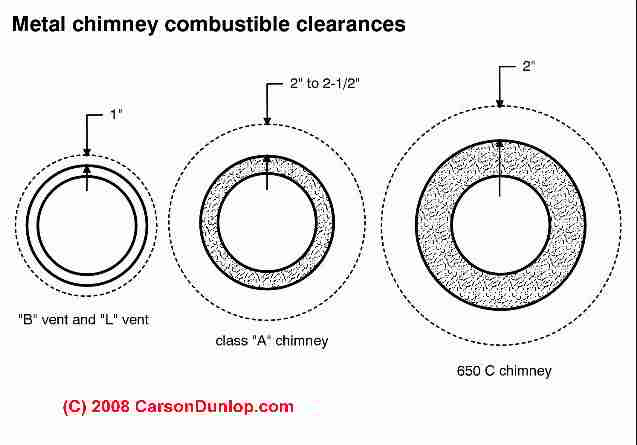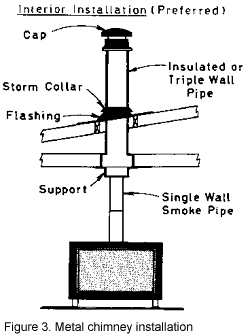Most of the double wall stove pipe allows for 6 clearance from wall combustibles and 8 from ceiling combustibles.
Triple wall stove pipe clearance to combustibles.
Double wall stovepipe is used when you don t have 18 or more clearance from combustibles.
You know of a single wall pipe that is called triple wall.
Inside the enclosure building codes require a 2 inch clearance around the double or triple wall chimney pipe.
Using a heat shield on a single wall stovepipe.
B vents 1 clearance class a chimneys 2 to 2 1 2 clearance.
These pipes contain fiberglass or ceramic insulation to stay cooler on the outside and must maintain a 2 inch clearance to combustibles.
Instead this type of pipe has a space in between the inner and outer layer of the pipe where air can flow through.
Triple wall class a pipe is the preferred solution for homeowners installing their own system due to its increased margin of safety.
Solid packed chimney these pipes have smaller inner diameters usually ranging from 5 inches to 8 inches that have some insulation either double wall like simpson duravent duratech pipe or triple wall like simpson duravent duraplus pipe.
Carson dunlop s sketch summarizes combustible clearance requirements for the three main types of metal chimneys.
While a double wall class a chimney pipe is adequate for most installations wood.
Duraplus chimney is a triple wall all fuel chimney system that is for use with wood stoves fireplaces furnaces boilers stoves ranges water heaters or other appliances fueled by wood oil coal or gas.
Triple wall class a pipe is for use with wood stoves fireplaces furnaces boilers ranges water heaters or other appliances fueled by wood coil oil or gas.
Higher elevations or the use of elbows or a tee will require approximately 30 to 60 more height to provide for an adequate draft.
Duraplus is designed to stay cool on the outside to boost stove efficiency and to provide for a fire safe design that protects both the chimney and the building.
Air cooled pipe also has a 2 clearance to combustibles but it differs by not having any insulation.
The nfpa calls for an 18 clearance to combustible walls for single wall stove pipe.
It s triple wall and 1 clearance to combustibles is ok for vertical runs.
Maintain at least 2 clearance to combustibles.










